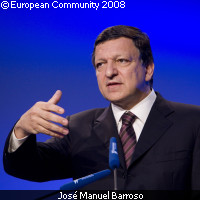EIT Governing Board appointed
The European Commission has officially appointed the Governing Board of the European Institute of Innovation and Technology (EIT), paving the way for the launch of the first Knowledge and Innovation Communities (KICs) under the new initiative. The board will hold its first meeting on 15 September in Budapest, Hungary, the new home of the EIT. The 18 members of the new board are professionals from various fields in research, academia and industry. More members will join the Board once the initial KICs are up and running, including doctoral candidates and administrative staff of the EIT and KICs. An ad-hoc independent Identification Committee nominated the members of the Board. Both the European Parliament and Council were aware of the final result of the selection process, the Commission said in a statement. At next month's meeting, the Board will set in motion the process that will lead to the establishment of the first two to three partnerships known as 'Knowledge and Innovation Communities' (KICs), which should be launched by December 2009. The KICs are the operational centres of the EIT. More explicitly, the Board will select, coordinate and assess the KICs. As integrated public-private networks, these centres will prove beneficial for key players, in particular by providing strategic European resources for industry, research and academia stakeholders. The KICs will work at fuelling innovation for both the economic and social sectors. Important KICs activities include the generation, dissemination and exploitation of new knowledge products and best practices in the innovation sector. Speaking to reporters about the official appointment, EC President José Manuel Barroso said: 'I am delighted with the nomination of the EIT's first Governing Board. I am convinced that the excellence of the Board's members will make it a success.' He went on to say that innovation and technology are fields that Europeans must focus on. An initiative targeting excellence in European innovation to meet the challenges of globalisation, the EIT fuses the three sides of the 'Knowledge Triangle': higher education, research and business-innovation. Ultimately, the EIT's innovation-oriented reference model will stimulate and drive change across the board, impacting the research and education sectors in particular. The EC has said that innovation fuels growth and competitiveness, which in turn ensure the well-being of European citizens. It is clear that Europe has strong infrastructure in both the research and education sectors. But a thorn exists: many research and education representatives do not have access to industry, and thus must contend with obstacles so as to secure the 'critical mass' required for innovation. The EIT therefore will be instrumental in not only increasing the EU's capacity to transform research and education results into tangible business innovation opportunities, but it will also strengthen innovation between the EU and its competitors abroad.
Countries
Hungary



